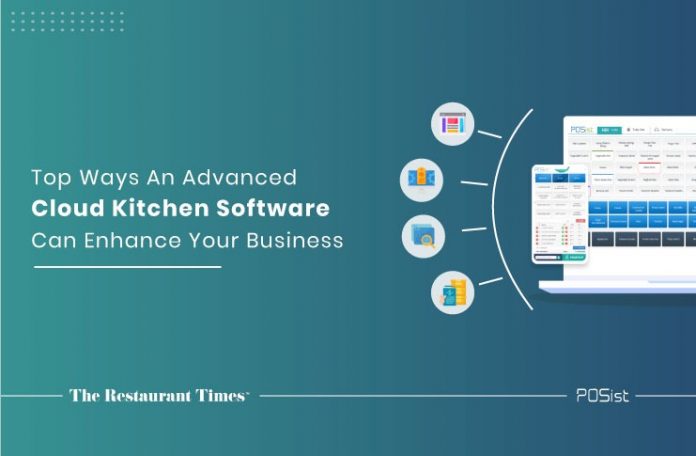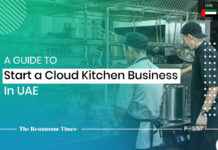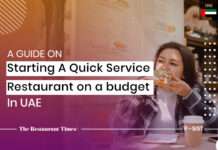The Middle East as a region has grown immensely in the past few years – both socially and economically. Technology has entered every business vertical, and the restaurant industry is no exception. In the UAE, the restaurant industry has been undergoing a transformation of its own. Backed by a double-digit rise in internet services and smartphone usage, the food delivery and cloud kitchen industry is speeding up like never before, especially after the advent of COVID-19. More than 380 brands with more than 70 cloud kitchens were operating in the country as of 2020. All these driving factors have increased the demand for cloud kitchen software.
While the dine-in facilities were shut during the lockdown, online food delivery witnessed heavy volumes of orders from people craving their favourite delicacies. Thus, cloud kitchen is recovering as fast as it is because it only consists of the back of the house operations, relying only on online deliveries. However, with the scaling up of cloud kitchens, the need for investment in robust cloud kitchen software has also gone up many times owing to the myriad advantages it provides.
This article will provide insights into how advanced POS software can help in running cloud kitchens more efficiently.
6 Ways In Which POS Software Can Scale Up Your Cloud Kitchen Business
Investing in POS software has become essential owing to the growing popularity of cloud kitchens. Let’s look at the different ways in which an advanced POS software can help a cloud kitchen business grow in the UAE.
1. Centralized Ordering Procedure And Unified Dashboard
Cloud kitchens work on different levels and receive orders from multiple outlets due to which there exists an immense requirement of advanced POS systems. From handling a multitude of orders efficiently without missing out on any, to seamlessly carrying out delivery services, POS software does it all. It collects and stores essential customer data like preferred dishes, location, marriage anniversaries, birthdays, etc., centrally, that can be used to carry out targeted marketing.
Furthermore, having a single dashboard for every operation is quite convenient. A good cloud kitchen software lets you carry out menu management, view the real-time order status for multiple brands, track delayed orders, etc., all on one screen. Its fast and efficient tools enable businesses to reduce delivery time, eventually leading to better customer satisfaction.
2. Management Of Multiple Brands And Outlets
The primary purpose of cloud kitchens is to bring together multiple brands and deliver food from a single kitchen. POS software automates dozens of tasks for restaurateurs by accommodating and managing all their brands from one centralized panel that takes care of the multiple inbound orders. The entire setup allows customers to order from numerous brands and outlets.
Deployment of POS software in a cloud kitchen solves many of its operational problems. It eradicates the hassles of collecting orders on different screens for different brands, which is quite inconvenient when running a multi-brand cloud kitchen. A centralized panel takes up all incoming orders and pushes them directly to the kitchen, where the staff views them on integrated Kitchen Display Systems.
3. Real-time Data Analysis And Access To Detailed Reports
After the pandemic, the UAE restaurant industry has seen many changes in customer behaviour. Monitoring food preparation and deliveries is therefore crucial for the cloud kitchens to sustain their growth. This means measuring the output and the efficiency of their work. Real-time data analysis offered by the POS software lets cloud kitchen owners monitor the order preparation time, delivery time and real-time location of delivery boys. Keeping track of discounts and complimentary items offered is also made easy by the software leading to lesser chances of thefts.
Furthermore, the provision of detailed reports of different sections of the cloud kitchen keeps the owner updated on where he needs to invest further and where to cut costs. There are multiple reports available in a good cloud kitchen software, including staff attendance reports, sales reports showing the item-wise profit and loss statements, CRM reports, taxation reports for the cashiers, and many other reports that give an overview of the status of the cloud kitchen business.
4. Management Of Sales
Management and keeping track of sales across multiple outlets of different brands is an important task and should be done thoroughly to know if the business is running into losses or making a profit. Carrying out this task manually can be cumbersome and prone to mistakes. Instead, a robust POS software can efficiently execute the task by streamlining operations and giving a detailed overview of the sales and transactions.
Reports about home delivery volumes, mode of transaction, discounts applied, etc. can also be accessed, and that too all on one screen. This provides insights into the sales and transaction data from all outlets and brands so that businesses can figure out the most popular cuisine, customer behaviours, prime locations from where most orders are received, and other relevant data. The cloud kitchen can thus plan activities like securing bank loans, marketing campaigns, inventory management, and many other operations on the basis of the data.
5. Delivery Partnerships
The food delivery business has undergone significant growth in the last few months due to COVID-19. Online transactions and deliveries saw a surge of 15 percent in May 2020 as compared to pre-COVID times. It further grew by 30 percent by October 2020, and the impact of the coronavirus intensified. With the evident increase in online food orders, managing deliveries efficiently has become indispensable for cloud kitchens.
Managing delivery partnerships is the most important feature of POS software as cloud kitchens rely entirely on online deliveries. Having third-party integrations in their cloud kitchen software can help F&B businesses scale up their operations faster. This is because an easy integration with other food delivery apps or food aggregators enables them to expand their reach and engage new audiences.
Delivery time optimization enabled by POS software ensures the standardization of order preparation time to match the arrival time (to the restaurant) of the rider. This kind of high-precision order management system prominently improves time optimization. It allows customers to order from various platforms, eventually scaling up the revenue generated and cloud kitchen efficiency.

6. Inventory Management
Inventory management is one of the most essential cloud kitchen tasks, especially when multiple brands are involved. A cloud kitchen needs to keep the inventory stocked for different brands from time to time, figuring out which can be an arduous task. Here, a robust POS software automates inventory management for multiple brands and lets you track the item-wise raw material consumption.
POS software is designed to alert staff whenever a particular brand’s raw material stores need to be restocked. Additionally, it can also be used to provide standard instructions for food preparation, such as the right amount of ingredients for a particular dish in order to maintain the brand’s unique taste and standard.
Cloud kitchens are without doubt the future of the UAE restaurant industry. Therefore, the adoption of advanced POS software has become extremely important for the generation of maximum profits. To know more about what model would be the best fit for your cloud kitchen, contact us!


















